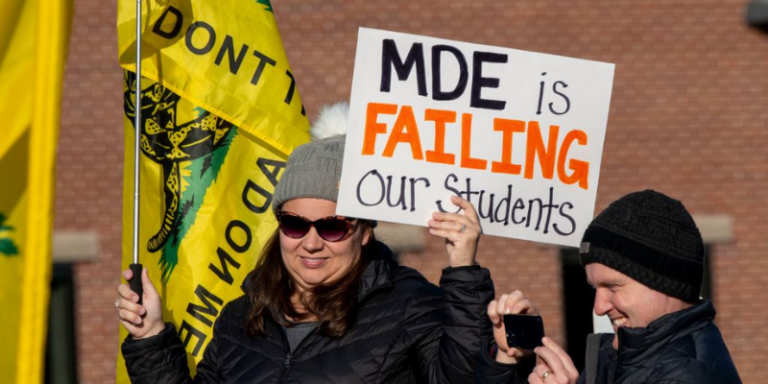Is School Choice the Best Choice?
Will school choice mean true educational equality?
By: Jose Backer | July 9, 2020 | 442 Words

(Photo by Michael SilukUniversal Images Group via Getty Images)
What Is ‘School Choice’?
School choice refers to the right of parents and guardians to choose which school their kids attend, usually supported in some way, such as through a voucher program. Without school choice, parents can choose to send their kids to the public school in the district in which they live or pay to send them to a private school while still paying the taxes for the public school as well. With a voucher program, however, the parents can get some of the tax dollars set aside for the public school system to use for tuition at private schools.
For example, let’s look at Indiana. The average cost for one child to go to public school for a year is $3,300. Parents who want to send a child to a private school could apply for a voucher for $3,300. That money would then pay part or all of the tuition for that child to go to the private school.
Partisan Controversy
School voucher programs have been around since the early 1980s, but a lot of people don’t like them. Many believe that these programs are an attack on the public education system and that people who want school choice want public schools to fail. According to data, conservative Republicans tend to support school voucher programs. In contrast, liberal Democrats tend to oppose school voucher programs. They would rather see more public school funding and resources and no more government support for private schools. Many Democrats also point out that money for these voucher programs will often go to religious private schools. They see this as a violation of the separation of church and state.
The Facts
Voucher programs have accomplished a lot of good, and both the enrollment and graduation rates between elementary and high school have improved. And it has been good for public schools in some ways, too. Often, the competition between private and public schools will even cause the academic performances at public schools to get better. This is because if different schools are competing for the same funding, they have to work harder to make sure parents choose them.
The negatives of voucher programs often come from the lack of additional support and social services that tend to come from public schools, like meal programs and disability protections. School choice also increases the chances of more intelligent children transferring out of public schools and into private schools. That’s called “brain drain.” Voucher programs also ultimately cut public education spending by redirecting the money to private schools, leading critics to believe that supporters of those programs want to see the government fail at an essential job.
















